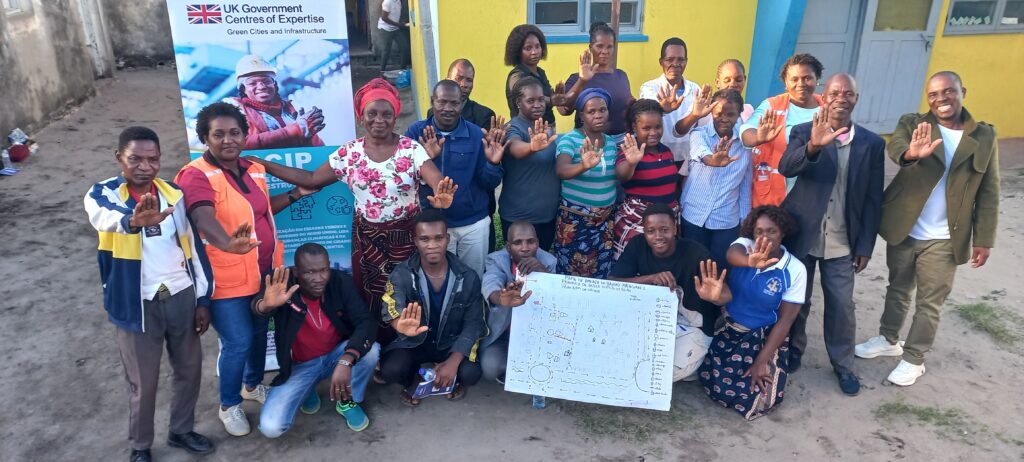- Volunteers from Beira, Mozambique have taken part in training to strengthen their existing roles serving on Community Risk and Disaster Management Committees.
- Committees assist with evacuation efforts in high-risk areas and this training helps them better prepare for and coordinate disaster responses.
- With over 200 people trained, it will reinforce capacity to respond more effectively to climate emergencies such as cyclones, flooding and high tides.

Members of Matacuane Risk and Disaster Management Committee, Beira, Mozambique.
A diverse team of community volunteers from the port city of Beria, Mozambique, have taken part in training for climate-related risk and disaster management, jointly delivered by Green Cities, Infrastructure and Energy Programme (GCIEP) and the National Institute for Disaster Risk Management and Reduction (INGD).
The training took place between 30 June to 3 July and involved volunteers from four Community Risk and Disaster Management Committees already operating in their respective neighbourhoods of: Esturro, Macuti, Matacuane and Alto da Manga.
These committees are composed of dynamic volunteers selected from their communities, and play a vital role before, during and after climate-related events. Each committee comprises 18 members, with an equal gender balance and serves as a bridge between local authorities and residents. Committees ensure that alerts are communicated in a timely manner, assist with evacuation efforts in high-risk areas and help mobilise communities towards safe zones.
The port city of Beira, which is located partly below sea level, stands on the frontline of climate change and is vulnerable to the increasing occurrence and severity of extreme events, such as cyclones, flooding and high tides. In 2019, the city was hit by Cyclone Idai, one of the most destructive to hit the African continent, with over 600 people killed and hundreds of thousands displaced.
The GCIEP-INGD training helps reinforce the capacity of committees to act efficiently, coordinating with local institutions and responding promptly and effectively to climate emergencies.
By August 2025, a total of 12 existing committees, encompassing 216 people, are expected to receive training, marking a significant step towards climate resilience in the city.

The UK’s Green Cities, Infrastructure and Energy Programme is tackling climate change and extreme poverty by accelerating the delivery of sustainable green cities and climate-resilient infrastructure.
Published
24/07/25
